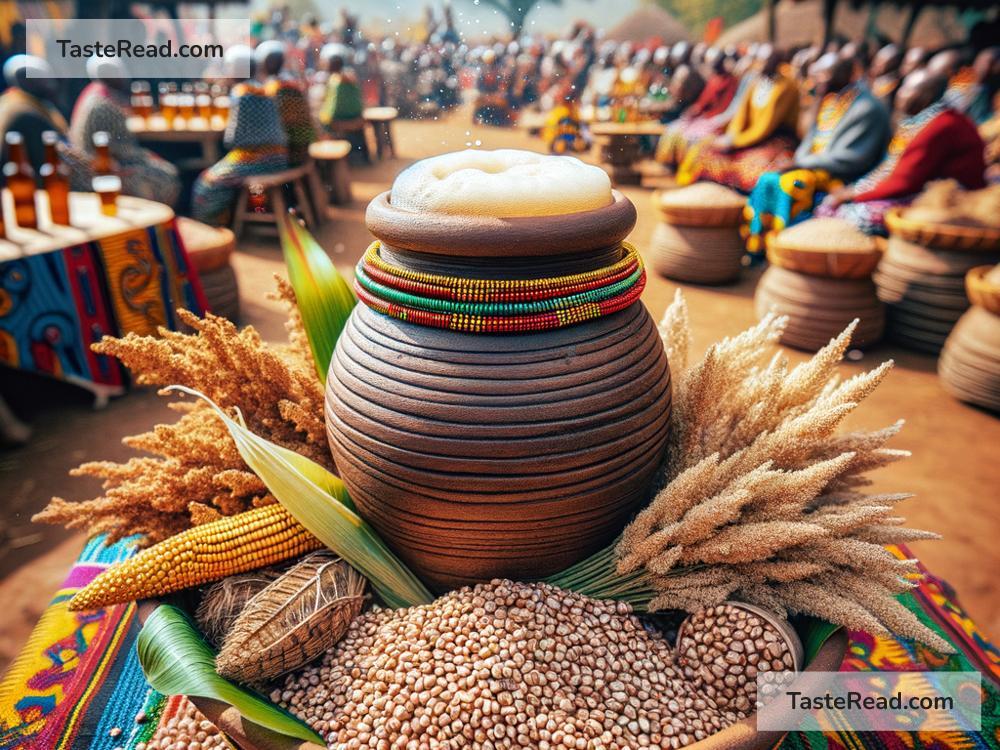Journeying Through Organic Sorghum Beer Traditions in South Africa
South Africa is a country rich in history, culture, and traditions. Its people have passed down unique practices from generation to generation, one of which is the brewing and drinking of sorghum beer. Sorghum beer is more than just a beverage; it’s a symbol of community, a connection to the past, and a celebration of the natural world. In this blog, we’ll take a journey through the traditions of organic sorghum beer in South Africa, exploring its history, significance, and the role it plays in the country today.
What is Sorghum Beer?
Sorghum beer, known locally as “umqombothi,” is a traditional South African beer made from sorghum grain, maize (corn), and water. Sorghum is a type of grain that grows well in hot and dry climates, making it a popular crop in Africa for centuries. The beer is naturally fermented, often with a slightly sour taste and a thick, cloudy texture. It is crafted without preservatives or additives, making it a pure, organic drink.
Unlike commercial beers with high alcohol content, sorghum beer is lower in alcohol, typically containing around 1 to 8% alcohol by volume. This makes it a social drink, one that’s consumed during gatherings, celebrations, and cultural rituals.
The History Behind Sorghum Beer
The history of sorghum beer goes back thousands of years. Sorghum was first cultivated in Africa and became a staple food and drink in many African cultures. Across South Africa, sorghum beer was an important part of life for indigenous communities like the Zulu, Xhosa, and Sotho people. It was used in ceremonies, rituals, and community celebrations, often made by women who inherited the brewing methods from their mothers and grandmothers.
For South Africans, brewing beer was not just about the drink itself; it was about bringing people together. Beer was often shared in large clay pots or buckets, passed around in a circle so everyone could take a sip. This communal drinking style reflected the spirit of ubuntu, the African philosophy of unity, compassion, and mutual care.
Sorghum Beer in Culture and Tradition
Sorghum beer is closely tied to traditional ceremonies in South Africa. From weddings to funerals, initiation rites, and harvest celebrations, the beer plays a key role in uniting families and communities. One of its most important roles is in ancestral rituals. Many South Africans believe in honoring their ancestors, who are seen as protectors and guides. Sorghum beer is brewed and offered to ancestors during spiritual ceremonies as a way to connect with them.
The process of brewing sorghum beer is also rich in meaning. Women, especially older women, are often the ones who brew umqombothi for special occasions. The act of brewing is seen as a gift of care and love to the community. It’s common to hear laughter and stories shared during the beer-making process, creating an atmosphere of togetherness.
Organic Roots: Sustainability and Health Benefits
Sorghum beer is an organic drink, meaning it is made with natural ingredients that haven’t been treated with harmful chemicals. As the world embraces sustainability and healthier choices, the organic nature of sorghum beer has become even more relevant today. Sorghum grains are naturally drought-resistant and require less water to grow compared to other crops like wheat or rice, which makes them an environmentally friendly food source.
The beer also has nutritional benefits. Sorghum contains vitamins, minerals, and antioxidants that contribute to overall health. In traditional brews, umqombothi is rich in fiber, and the fermentation process can provide probiotics, which are good for gut health. While commercial sorghum beer is widely available, many locals still value the homemade, organic versions for their authenticity and natural benefits.
Sorghum Beer Today
Even in the modern era, sorghum beer remains a beloved part of South African life. While urbanization and globalization have brought commercialization to the beer industry, traditional sorghum beer still thrives, especially in rural areas. Homemade beer is often shared during cultural events like weddings, rites of passage, and major holidays. Many South Africans also use it as a form of income, selling their brews at local markets or community events.
In cities, companies are now crafting and selling sorghum beer in bottles and cans to reach a wider audience. However, some people feel that this loses the personal touch of traditional brewing. For those who value tradition, nothing beats the experience of drinking umqombothi from a large bucket or clay pot with friends and family around them.
A Taste of Tradition
To truly appreciate traditional sorghum beer, you have to experience the culture that surrounds it. It’s more than just a drink; it’s a way of life, a connection to South Africa’s roots, and a celebration of the land’s natural resources. Whether you’re visiting South Africa or just learning about its heritage, organic sorghum beer is a reminder of how food and drink can bring people closer to their community and history.
In South Africa, every sip of umqombothi carries the taste of tradition and the spirit of ubuntu. It represents harmony with nature and the connections we build with one another. So, the next time you hear about sorghum beer, remember: it’s more than a beverage—it’s a rich cultural treasure and a story worth sharing.

